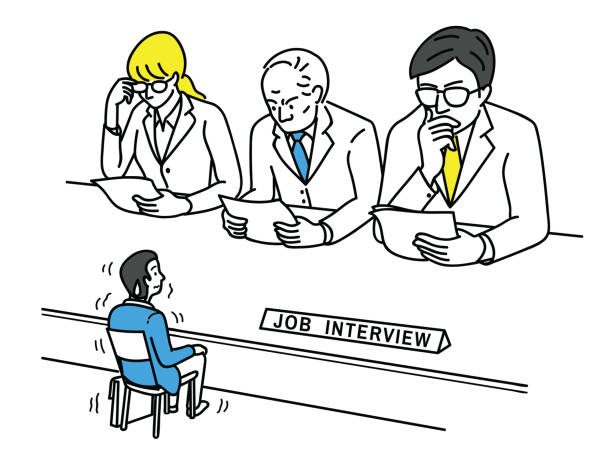
Simulated Interrogation
The moments leading up to my interview were filled with anxiety and the urge to run or jump out of the nearest window.
To calm myself, I recalled the training I have received on the AEL3001 module…
I will be using Boud’s model of reflective writing to recount my experience, reflect upon my feelings during and surrounding the experience before exploring the outcomes. Boud’s model refers to ‘those intellectual and affective activities in which individuals engage to explore their experiences in order to lead to new understandings and appreciations’ (18-40, 1985).
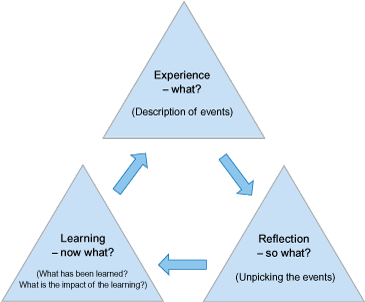
If I can convince them that I know what I’m doing, maybe I can convince myself?
The lecture presented by Emma Lennox on interview technique was extremely helpful in preparing me for this task. The list of job websites she compiled brought to my attention many sources I had never come across. I browsed for a role in Media Production and found an ad for a Production Assistant at UKTV. An entry level job offering the chance to work on an array of productions with their in-house production team.
‘If you are slightly type A or obsessive compulsive and like to run a tight ship while still having fun , you have the makings of a good producer’.
Kellison. 2006, pp.5
The job description detailed everything I was interested in; liaising with other departments, booking crew, arranging shoots and so on. I looked through the ‘Who you are’ and ‘What you will be doing’ sections and began jotting down past experiences and skills that would be worth mentioning.
I had planned to bring these notes into the interview with me, thinking it would be helpful to have a quick glance at them if I ever felt I was running out of information. However, I am aware of how this has been a distraction for me in the past; presentations where I would feel I have to stick to my notes and either become thrown off by them or end up just reading straight of the page. Instead, I decided to look over and memorise my notes rather than bring them in with me. This was a better strategy because it would then force me to prepare beforehand as I would have no help from any external materials on the day.
I thought back to the interview that landed me my placement with Big Telly Theatre company; a fairly casual conversation. Having only been arranged the day before, I did not have time to properly prepare. Still, it went well and I was able to calmy and competently describe myself and why I was suited for/ wanted the role. My behaviour in this interview with Big Telly reminded me that in high pressure situations, I am able to put on a good act; feigning self-assurance despite the nervous dialogue in my head.
This day was no different. I sat down in front of my peers and introduced myself, feeling a wave of relief after beginning to speak; the tension was broken. I kept good posture, made sure not to fidget or move around too much in my chair and make just the right amount of eye contact with my interviewers (which came up as a positive in my feedback). Using body language as a ‘fake it ‘til you make it’ approach.
When answering questions that encouraged me to recount my own experiences, I made use of the STAR technique, which I had picked up from Emma’s lecture. This is an effective tool for structuring this type of answer and it enabled me to detail my experiences in a straightforward and direct manner. I am grateful for the time spent learning this technique and will definitely be using it often.
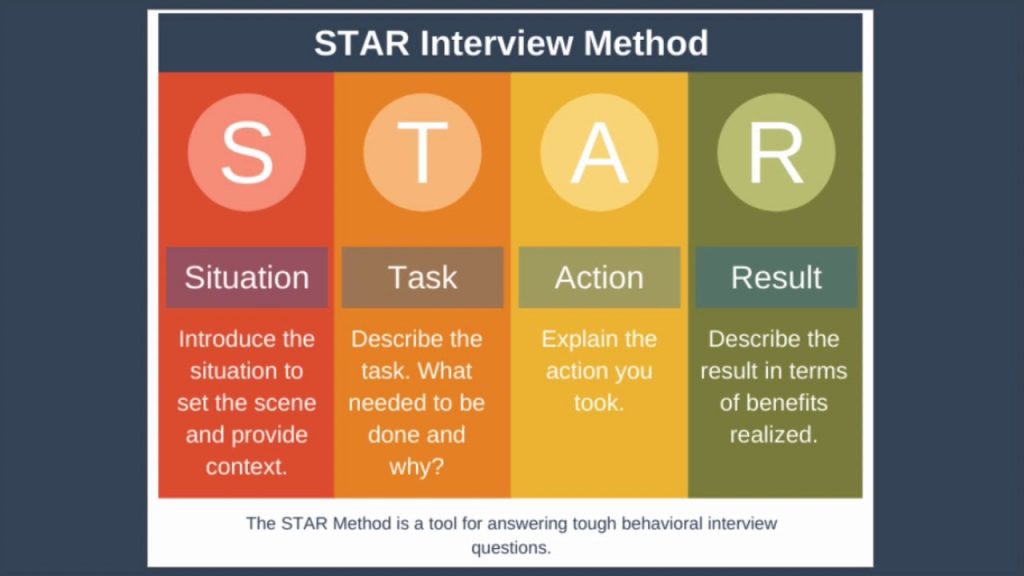
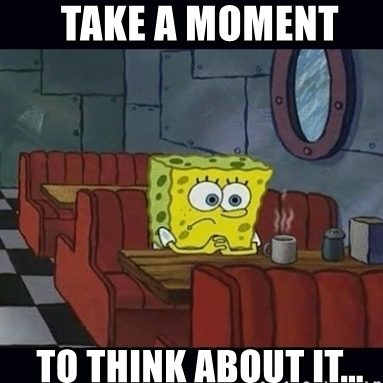
Another important piece of advice for me was allowing myself time to take a breath and think before answering a question. Prior to this task I was of the mindset that a pause would come across as hesitation or doubt in one’s skill, therefore any silence was to be absolutely avoided. On this occasion, whenever I felt thrown-off by a question, I allowed myself an opportunity to take a breath and choose my words carefully.
But what if….?!
I was excited by this opportunity and once I began my research, was upset that I wasn’t actually applying for this job. Researching the role was enjoyable, preparing my answers and thinking over my past experiences for relevant stories and projects I have worked on reminded me that I am fairly qualified.
It was the night before the interview when the nerves began to set in. I am quite a shy person. In times when I am comfortable, I can be outspoken and very sociable. However, knowing I will have to speak about myself in front of a group for them to judge my performance makes me extremely self-conscious. This feeling is the reason why I usually put off preparing, avoiding the thought and the immediate onslaught of nerves. Even though I can recognise this is a totally counter-productive practice as then nothing gets done, I still struggle to move past it in the moment.
Feeling that I had done an ample amount of preparation for this task gave me a sense of achievement and calm. This is similar to the calmness and relief I felt when the interview had finally begun. The build-up to an event usually proves to be more daunting than the event itself and catastrophising (mulling over a million ‘what-if’s in my head) never helps. Jennifer Moon illustrates the difference between ‘deep’ and ‘surface’ level approaches to learning, detailing how anxiety caused by assessment and deadlines may cause a student to ‘surface’ and not fully understanding what they have learned. (63, 2014). I refused to ‘surface’ on this occasion and decided that even if this experience went terribly, it is an opportunity for me to learn.
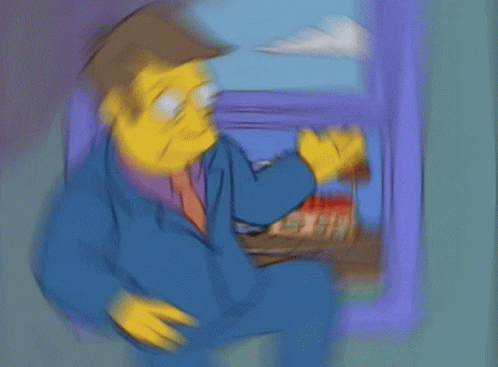
So, when do I start?
Something I noticed during this task was whenever I was finished speaking, I began focusing on my inner dialogue, ‘rating’ my answers in my head and trying to prepare for the next question. While I was distracted by own cluttered thoughts, the next question had already been asked and was now awaiting an answer. Getting out of my own head and focusing less on analysing every word I say has been a goal of mine for quite some time. In order to achieve this, I try to practice mindfulness, as detailed in my first blog post.
‘Think about the interview but don’t dwell morbidly on it. Think about any questions you could have answered better or that you were unprepared for.’
Gregory. 2007, 102
The feedback I received from my peers painted a picture of someone well spoken, who was prepared, with an air of confidence. I was shocked, absolutely certain that anyone could see through my façade. An area of improvement was that my answers tended to stray from the original question, an issue I was not prepared for as I assumed that I would never have enough to say. I believe that with more practice using the STAR technique and making sure to keep the question in my mind rather than a mountain of self-doubt, this can be improved.
I left the interview feeling lighter, partly because the scary task was over but also because I had gained a sense of confidence in my abilities. This experience has taught me not to believe my self-doubting ideas and instead trust that I do have the capability to succeed with hard work. I am grateful for this experience and may carry it out again with my friends once I land my first graduate job interview.
I almost can’t wait to try it out for real!

Bibliography
Boud, D., Keogh, R., Walker, D.. Reflection: Turning Experience into Learning. RoutledgeFalmer, New York. 1985
Gregory, Georgina, Healy, Ros, Mazierska, Ewa. Careers in Media and Film, The Essential Guide. Sage, London. 2007
Kellison, Cathrine. Producing for TV and Video, A Real World Approach. Burlington, Focal Press. 2006
Moon, Jennifer A. A Handbook of Reflective and Experimental Learning, Theory and Practice. RoutledgeFalmer, London. 2004 Spicer, Andrew, McKenna, A.T., Meir, Christopher eds.. Beyond The Bottom Line, The Producer in Film and Television Studies. Bloomsbury, New York. 2014
AEL 3001 Blog Post 2
"Tell Us About Yourself"
You May Also Like

Finding the Right Balance: My Simulated Interview Experience
14 February 2022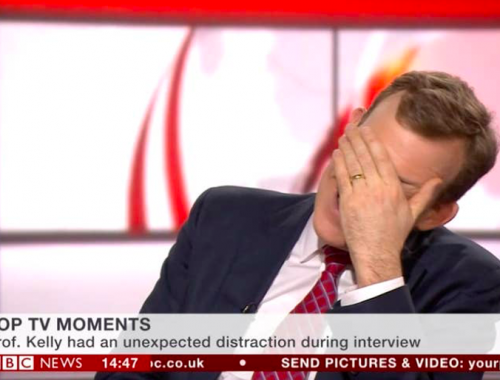
When the BBC thinks you live in the Atlantic – My Simulated Interview
17 February 2022
